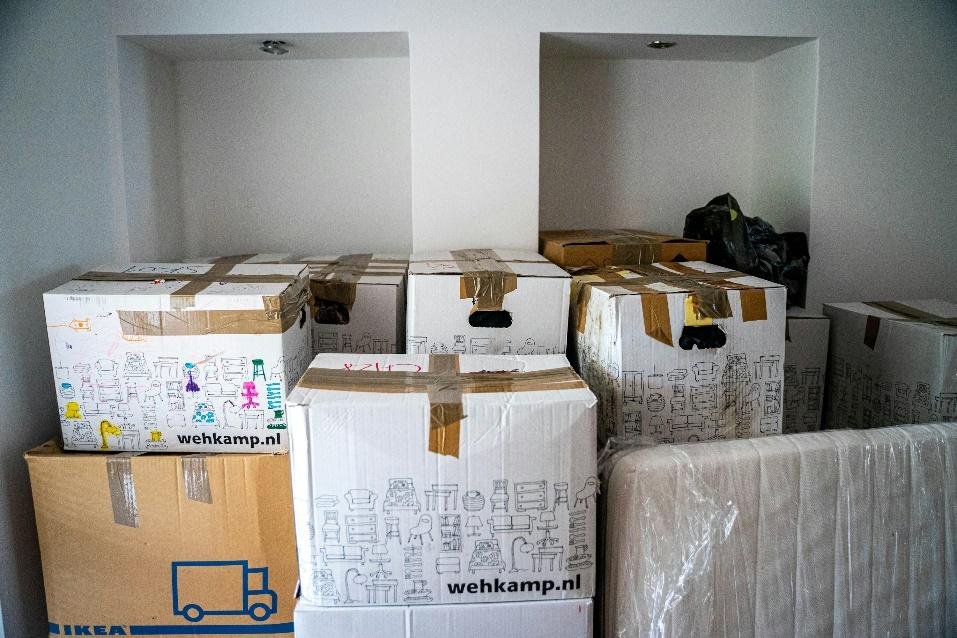
Planning a cross-country move can stir a strange mix of excitement and anxiety. The promise of a new beginning is often tangled with an endless checklist, unexpected expenses, emotional goodbyes, and the pressure of orchestrating a flawless transition.
While most advice on long-distance moving focuses on surface-level tips—packing techniques, timing strategies, or the importance of labeling boxes—there’s a deeper layer of realities that often gets glossed over. These less-talked-about elements can make or break the experience.
Whether leaving a place like South Florida, with its distinct climate and lifestyle, or heading there for a fresh start, understanding what lies ahead beneath the surface can help ensure a smoother move, both mentally and logistically.
Choosing the Right Moving Support: It’s More Than Just Booking a Truck
One of the most overlooked aspects of a long-distance move is the quality and reliability of professional help. Not all moving services are created equal, and choosing the wrong one can add unnecessary chaos to an already demanding process. It’s not just about finding someone who can lift heavy boxes—it’s about securing a team that understands logistics, communication, care, and timing.
During long-distance moves, movers aren’t just transporting possessions—they’re managing timelines, navigating inter-state regulations, and, in many ways, handling the emotional weight of a significant life transition. Getting this part wrong can lead to misplaced belongings, delayed arrivals, or even unresponsive service providers once the truck is on the road.
For instance, if relocating from or to a complex region with high traffic and unpredictable weather, local expertise becomes invaluable. One of the best moves is to get in touch with a local South Florida moving company to ensure a hassle-free experience. Such companies often have extensive regional knowledge, seasoned logistics teams, and personalized services that national chains might lack. The benefit isn’t just in efficiency—it’s in peace of mind, knowing someone truly familiar with the terrain is in charge of your belongings.
Downsizing Isn’t Optional—It’s Essential
Cross-country moves offer a rare opportunity to reevaluate what truly matters. While it’s tempting to pack up everything accumulated over the years, transporting unnecessary items across states will cost more money, time, and effort than it’s worth. Every extra box adds to the weight, which directly affects the price quoted by most long-distance movers.
More importantly, a move of this scale should ideally represent a mental and emotional clean slate. Holding on to items that serve no purpose only drags old energy into a new chapter. Many movers realize too late that they’ve paid a premium to transport clutter they don’t even want anymore. A ruthless approach to sorting possessions beforehand can lead to both practical and psychological lightness upon arrival.
The Emotional Whiplash Is Real
One moment, the future feels exhilarating. The next, it’s terrifying. Such emotional fluctuations are not only common—they’re expected. A cross-country move isn’t just physical relocation; it’s a psychological shift. Every familiar landmark, routine, and relationship becomes a part of the past, creating a void that isn’t immediately filled.
Most guides focus on the technicalities of moving, but few talk about the subtle grief that can accompany leaving one’s comfort zone. Acknowledging this emotional turbulence is crucial. It’s not a weakness—it’s a normal part of letting go. Creating time to properly say goodbye to friends, neighbors, favorite hangouts, and even the home itself helps bring emotional closure.
Budget Shocks and Hidden Expenses
Even the most organized budgets tend to fall short when planning a cross-country move. It’s not just about paying for a truck and fuel. There are a multitude of hidden costs that creep in—packing supplies, vehicle transportation, temporary lodging, utility deposits, cleaning services for the old home, and sometimes even storage fees if the new place isn’t ready in time.
Another common surprise is the fluctuation in moving company estimates. Initial quotes can balloon due to last-minute adjustments, delays, or miscalculations of item weight. Many people also forget to account for meals on the road, pet transport services, and incidental travel expenses like tolls or parking fees.
Your Vehicle May Not Be Road-Trip Ready
It’s easy to assume a personal vehicle will carry its weight across hundreds or thousands of miles without issue. Unfortunately, that’s not always the case. Long drives, especially through varied terrain and climate, can expose underlying mechanical issues. Before the move, the vehicle should undergo a thorough inspection—checking brakes, tires, oil, coolant levels, belts, and lights. A pre-move tune-up isn’t an unnecessary expense—it’s a protective measure.
Additionally, think beyond mechanical readiness. Is the vehicle comfortable for long periods of travel? Does it have enough space for family members, pets, or important items to be kept close during the move? These are questions that often surface halfway through the drive—when solutions are harder to come by.
Kids and Pets Feel It Too
Children and animals are especially sensitive to environmental changes. The chaos of packing, the disruption of routine, and the general sense of upheaval can be stressful, even if they can’t fully articulate it. In children, this may appear as clinginess, mood swings, or resistance. In pets, it might manifest as anxiety, aggression, or restlessness.
Keeping some level of consistency during the move—like maintaining mealtime routines or having favorite toys or blankets easily accessible—can provide comfort. Involving children in the moving process, even in small ways, can also help them feel included and less powerless.
The First Few Weeks Can Feel Like a Freefall
Arriving at a new destination marks the end of the moving journey but the beginning of a new one—settling in. The first few weeks often feel surreal. Simple things like finding a grocery store, navigating streets, or knowing which drawer holds the forks can feel overwhelming. Many underestimate how mentally taxing it is to relearn daily life from scratch.A cross-country move is more than logistics and labor. It’s a powerful transition that requires emotional readiness, strategic decision-making, and a willingness to adapt. The smoothest moves aren’t the ones with zero hiccups but the ones where individuals are prepared for the unspoken truths of starting over. Behind the checklists and cardboard boxes lies a journey of self-discovery, resilience, and reinvention that no one tells you about—but is just as important to prepare for as the move itself.













